FOREVER EYE CARE PACK
Original price was: $280.00.$247.92Current price is: $247.92.
Most people have eye problems at one time or another. Some are minor and will go away on their own or are easy to treat at home. Others need a specialist’s care.
See if any of these common problems sound familiar. And always check with a doctor if your symptoms are really bad or don’t clear up within a few days.
Description
Forever Vision Eye Pack is a unique combination of powerful and potent dietary supplements made from herbs and antioxidants that are very rich in carotenoids, flavonoids, Vitamin A, C, E which helps to improve poor vision and eyesight and are very helpful in alleviating all eye conditions such as Glaucoma, Infections of the eye, poor vision, Cataract, eye pressure and all degenerative changes.
*Facilitates retina formation required for low light and color vision.
*Blocks the damage caused by free radicals thus heals wounds.
*Slowing down the processes that damage eye cells.
*Protecting the eye tissues from sunlight damage. 
FOREVER IVISION
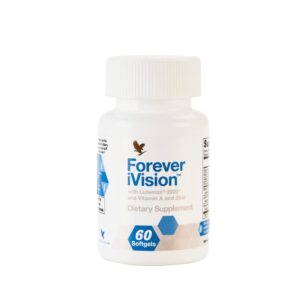
BENEFITS OF FOREVER IVISION
Forever iVision is a supplement designed to support healthy vision, especially in the digital age. This blend of lutein, zeaxanthin, bilberry extract, vitamins A, C, E, and zinc, rich in flavonoids, antioxidants, and carotenoids, helps protect your eyes from the various strains caused by screens and environmental factors.
| As we age, our eyes become more susceptible to various issues, including cataracts, macular degeneration, and glaucoma. |
Forever iVision helps us take a proactive step to protect and support our eye health by improving visual processing speed, alleviating eye conditions such as glaucoma, eye infections, cataract, poor vision, night blindness, blurred vision, eye pressure and all eye degenerative changes.
| Health benefits of Forever iVision: |
⦁ Supports Healthy Vision: Forever iVision combines bilberry extract (antioxidants), beta-carotene (vitamin A), zinc, and Lutemax (lutein & zeaxanthin) to protect and enhance vision.
Bilberry extract improves night vision, while beta-carotene supports clear vision and low-light sight. Zinc aids vitamin A absorption. Lutemax filters blue light and protects the macula, vital for sharp vision and color.
Together, these ingredients provide comprehensive support for maintaining healthy vision in our modern, digitally focused world.
| ⦁ Supports Vision Loss (Cataracts and Glaucoma): Forever iVision supports eye health, including conditions like cataracts and glaucoma by providing essential nutrients that supports eye health. |
Lutein and zeaxanthin filter harmful blue light and protect the macula. Bilberry extract offers antioxidants for overall eye protection.
Vitamin A aids in retina function, while vitamins C and E combat oxidative stress, Zinc improves vitamin A’s effectiveness.
Together, these ingredients help maintain vision and slow vision loss associated with cataracts and glaucoma, without the need for surgery.
| ⦁ Supports Retinal Function: iVision includes essential vitamins and minerals to supports proper retinal function, while vitamins C and E protect against oxidative stress. Zinc helps boost the immune system, guarding the eyes against infection and inflammation. |
⦁ Helps Prevent Long-term Eye Strain: Forever iVision combats long-term eye strain using Lutemax® 2020, which filters harmful blue light, and bilberry extract, known for its vision-supporting antioxidants.
Beta carotene and zinc enhance vitamin A’s bioavailability, crucial for eye health. Together, these ingredients support the retina and macula, replenish macular pigment, and maintain visual processing speed, essential for reducing eye strain in our digital world.
| ⦁ Improves Visual Processing Speed: Forever iVision uses Lutemax® 2020, a blend of macular carotenoids, to help eyes filter blue light and protect from oxidative stress. This, along with vitamins A and E, supports faster visual processing speed in the digital age. |
⦁ Enhances Glare Recovery Time: Forever iVision enhances glare recovery and eye health using Lutemax® 2020, which supports the retina and macula, vital for clear vision and color processing. It includes bilberry extract for its antioxidant benefits, beta carotene for vision support, and zinc to improve vitamin A bioavailability.
The formula contains all three essential carotenoids—lutein, RR zeaxanthin, meso-zeaxanthin—for macular health and glare recovery. Ingredients like sunflower oil, gelatin, and beeswax form the softgel with fish (Tilapia), aiding visual processing and protection against UV rays, pollution, and artificial light.
| ⦁ Improves Blood Circulation to the Eye: Forever iVision enhances blood circulation to the eye primarily through bilberry extract, which contains anthocyanins known to improve vascular health.
Additionally, vitamins A, C, and E, along with zinc, work synergistically to maintain retinal health and protect blood vessels from oxidative stress, supporting overall circulatory function within the eye. |
⦁ Nourishes Eyes with Nutrients: Forever iVision nourishes the eyes with a potent blend of vitamins A, C, and E, and zinc, which work together to maintain normal vision and protect cells from oxidative stress.
The supplement also includes bilberry extract and Lutemax® 2020, providing antioxidants and carotenoids like lutein and zeaxanthin to support retinal health and combat the effects of blue light exposure, ensuring comprehensive nutrient delivery to the eyes.
| ⦁ Maintains Macular Pigment: Forever iVision maintains macular pigment through Lutemax® 2020, which supplies lutein, RR zeaxanthin, and meso-zeaxanthin, the three carotenoids essential for replenishing the macula.
These nutrients are vital for protecting the eyes against blue light and supporting overall macular health, ensuring clear and distinct vision. |
Purchase Forever iVision now, protect your eyes from environmental toxins, reduce the risk of age-related eye conditions, and support overall eye health.
| Forever iVision Side Effects: |
Forever iVision is a softgel, it generally healthy with no side effects.
FOREVER LYCIUM PLUS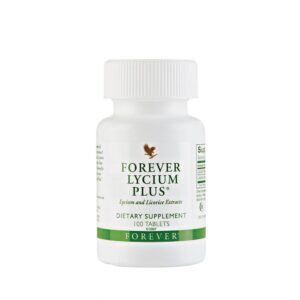
BENEFITS OF LYCIUM PLUS
Forever Lycium Plus is a dietary supplement that contains that contains goji berry and licorice root extract. Lycium berries (wolfberries or goji berries), have been used in traditional Chinese medicine for centuries.
Forever Lycium Plus is a powerful supplement that offers a range of health benefits. Its antioxidant properties, immune system support, and anti-inflammatory effects make it an excellent supplement for overall health and well-being.
Additionally, its ability to support eye health, cardiovascular health, neuroprotection, and digestive health make it a great supplement for individuals looking to support their overall health.
Health benefits of Forever Lycium Plus: |
⦁ Boosts Immunity: Lycium barbarum in Forever Lycium Plus stimulates the immune system, increasing white blood cell count and activating natural killer cells to fight off infections. This enhances the body’s natural defense against pathogens and diseases, reducing the risk of illnesses and infections.
A healthy immune system also helps to reduce the severity of symptoms and improve recovery time. The polysaccharides in Lycium barbarum have been shown to increase immune function by up to 50%. Furthermore, Forever Lycium Plus can help reduce the risk of chronic diseases, such as cancer and diabetes, by supporting immune function.
| ⦁ Supports Eye Health: The Lycium barbarum in Forever Lycium Plus has been traditionally used to support eye health, reducing the risk of age-related macular degeneration and cataracts.
It also improves visual acuity and reduces eye fatigue, making it an excellent supplement for individuals who spend extended periods in front of screens or engage in activities that require focused attention. The antioxidants in Lycium barbarum have been shown to reduce the risk of age-related macular degeneration by up to 50%. Additionally, Forever Lycium Plus can help reduce the risk of other eye diseases, such as glaucoma and diabetic retinopathy. |
⦁ Improves Liver Health: Lycium barbarum in Forever Lycium Plus help reduce liver inflammation and improves liver function. It also protects against liver damage and supports overall liver health, making it an excellent supplement for individuals with liver disease or at risk of developing liver disease. The antioxidants in Lycium barbarum have been shown to reduce liver inflammation by up to 50%. Furthermore, Forever Lycium Plus may help reduce the risk of other liver diseases, such as non-alcoholic fatty liver disease (NAFLD) and liver cancer.
| ⦁ Supports Cardiovascular Health: Forever Lycium Plus’s Lycium barbarum help lower blood pressure, cholesterol levels, and triglycerides, reducing the risk of cardiovascular disease. It also improves blood vessel function and reduces inflammation, which can lead to improved circulation and reduced risk of heart disease.
The fiber in Lycium barbarum has been shown to reduce cholesterol levels by up to 20%. Furthermore, Forever Lycium Plus can help reduce the risk of other cardiovascular diseases, such as atherosclerosis and peripheral artery disease. |
⦁ Provides Antioxidant Properties: Forever Lycium Plus contains Lycium barbarum, rich in antioxidants that neutralize free radicals, protecting cells from damage and promoting healthy aging. Antioxidants also reduce oxidative stress, improving overall health and well-being. This can lead to improved skin health, reduced inflammation, and enhanced immune function.
The antioxidants in Lycium barbarum have been shown to be more effective than vitamins C and E in reducing oxidative stress. Additionally, the antioxidants in Forever Lycium Plus can help reduce the signs of aging, such as wrinkles and age spots, and improve overall health.
| ⦁ Improves Nerve and Joint Health (Exercise Performance): Forever Lycium Plus’s Lycium barbarum may help improve endurance, reduce fatigue, and enhance exercise performance. It also improves muscle function and reduces muscle damage, making it an excellent supplement for athletes and individuals who engage in regular physical activity.
The antioxidants in Lycium barbarum have been shown to improve exercise performance by up to 20% and reduce muscle damage by up to 50%. Additionally, Forever Lycium Plus may help reduce the risk of other exercise-related injuries, such as muscle strains and tendonitis. |
⦁ Controls Blood Sugar Levels: Forever Lycium Plus’s Lycium barbarum help regulate blood sugar levels, reducing the risk of developing type 2 diabetes. It also improves insulin sensitivity and reduces inflammation, making it an excellent supplement for individuals with diabetes or prediabetes. The fiber in Lycium barbarum has been shown to regulate blood sugar levels by up to 20%.
Furthermore, Forever Lycium Plus help reduce the risk of other metabolic disorders, such as metabolic syndrome and polycystic ovary syndrome (PCOS).
| ⦁ Promotes Digestive Health: Lycium barbarum in Forever Lycium Plus help regulate bowel movements, reduce bloating, and improve gut health. It also supports the growth of beneficial gut bacteria, which is essential for a healthy immune system and overall well-being. The fiber in Lycium barbarum has been shown to regulate bowel movements and reduce bloating. Furthermore, Forever Lycium Plus help reduce the risk of other digestive diseases, such as irritable bowel syndrome (IBS) and inflammatory bowel disease (IBD). |
⦁ Improves Skin Health: The antioxidants in Forever Lycium Plus help reduce wrinkles, improves skin elasticity, and protect against sun damage. It also improves skin hydration and reduces age-related skin changes, making it an excellent supplement for individuals looking to improve their skin health. Additionally, Forever Lycium Plus can help reduce the risk of other skin diseases, such as acne and psoriasis.
| ⦁ Improves Brain Health (Neuroprotection): Lycium barbarum in Forever Lycium Plus have neuroprotective effects, reducing the risk of age-related cognitive decline and neurodegenerative diseases such as Alzheimer’s and Parkinson’s.
It also improves memory and cognitive function, making it an excellent supplement for individuals looking to improve their mental clarity and focus. The antioxidants in Lycium barbarum have been shown to reduce the risk of age-related cognitive decline by up to 50%. Additionally, Forever Lycium Plus help reduce the risk of other neurodegenerative diseases, such as multiple sclerosis and amyotrophic lateral sclerosis (ALS). |
⦁ Reduces Inflammation: Forever Lycium Plus’s Lycium barbarum has anti-inflammatory properties, reducing inflammation and improving overall health. Chronic inflammation is associated with various diseases, including arthritis, diabetes, and cancer. By reducing inflammation, Forever Lycium Plus can help reduce the risk of developing these diseases. Furthermore, Forever Lycium Plus help reduce the risk of other inflammatory diseases, such as autoimmune disorders and allergies.
| ⦁ Helps Prevent Cancer: The antioxidants and polysaccharides in Forever Lycium Plus help prevents cancer cell growth and proliferation, reducing the risk of developing various types of cancer. The supplement also helps reduce the risk of tumor growth and metastasis. The antioxidants in Lycium barbarum have been shown to reduce the risk of cancer by up to 50%.
Additionally, Forever Lycium Plus can help reduce the risk of other diseases, such as cardiovascular disease and neurodegenerative diseases. |
⦁ Promotes Wound Healing: Forever Lycium Plus help heal wounds, ulcers, abscesses, and bed sores, and treat toxic effects from chemotherapy and radiotherapy.
⦁ Forever Lycium Promotes Overall Health: Lycium berries also contain vitamins A, C, and E, which are all antioxidants, In and minerals such as zinc, selenium, zeaxanthin, copper, and beta-carotene which are also important for overall health.
Licorice extract is a good source of antioxidants, including glycyrrhizin. Glycyrrhizin has anti-inflammatory properties and helps to protect the body. Licorice extract also contains minerals such as potassium, calcium, and magnesium.
| Side effects of Forever Lycium Plus: |
Forever Lycium Plus is generally considered safe, hence, some people may experience potential side effects when it’s overdosed such as: Digestive discomfort, blood pressure interactions, allergic reactions, etc.
FOREVER ALOE VERA GEL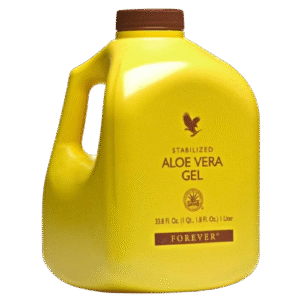
BENEFITS OF ALOE VERA GEL
Benefits of Aloe Vera for the Eyes. Aloe vera, commonly referred to as the “plant of immortality,” has long been valued for its countless health advantages. This succulent plant is excellent for supporting eye health in addition to skincare. We’ll look at the amazing advantages of aloe vera for the eyes in this article, including how it can help preserve clear eyesight and overall eye health.
1. Natural Eye Moisturizer
One excellent natural eye moisturizer that helps soothe dry and itchy eyes is aloe vera gel. Putting a small amount of aloe vera gel on the delicate skin around the eyes will calm and hydrate it, easing any discomfort brought on by dryness.
2. Soothes Eye Irritation
Aloe vera can provide much-needed comfort for people who experience eye irritation from the environment or from spending too much time in front of a screen. Aloe vera’s soothing and anti-inflammatory qualities help reduce irritation and redness, leaving your eyes feeling revitalized.
3. Reduces Eye Puffiness
The anti-inflammatory effects of aloe vera can help to lessen bags under the eyes and puffy eyes. Using aloe vera gel around the eyes on a regular basis might help reduce swelling and give you a fresher, more awake appearance.
4. Aids in Conjunctivitis Treatment
Pink eye also referred to as conjunctivitis, can be very unpleasant. Conjunctivitis can be treated and the healing process sped up with the help of aloe vera’s antibacterial and antiviral qualities.
5. Alleviates Eye Strain
Eye strain is a problem that is getting more widespread in today’s digital world. The eye muscles can be relaxed and eye strain can be reduced by applying an aloe vera compress.
6. Supports Eye Tissue Repair
Essential vitamins and minerals found in aloe vera support the repair of ocular tissues. Those who are healing from eye injuries or surgery may find this helpful.
7. Enhances Eye Health with Antioxidants
Vitamins C and E and other antioxidants found in aloe vera shield the eyes from free radicals, which can cause oxidative stress and eye damage. Juice from aloe vera plants should be consumed frequently to promote eye health.
8. Prevents Dry Eye Syndrome
A common problem that results from inadequate lubrication of the eye’s surface is dry eye syndrome. The moisturizing qualities of aloe vera can aid in the prevention and treatment of this ailment, supporting comfortable and healthy eyes.
9. Improves Vision Clarity
The minerals in aloe vera, such as lutein, and beta-carotene, are crucial for preserving sharp vision. These substances promote the retina’s health and could guard against age-related macular degeneration.
10. Reduces Eye Inflammation
Eye inflammation, whether brought on by allergies or other causes, can be uncomfortable. The anti-inflammatory qualities of aloe vera can effectively lessen and relieve eye discomfort.
11. Fights Eye Infections
Aloe vera is excellent in treating a variety of eye infections due to its antibacterial qualities. Fighting infection-causing bacteria or viruses can be aided by using aloe vera gel or using an aloe vera-based eye drop.
12. Promotes Healthy Tear Production
Tear production, which is essential for maintaining normal eye lubrication, can be boosted by aloe vera. Those who suffer from persistent dry eyes will benefit from this.
13. Protects Against UV Damage
The eyes might become harmed over time by exposure to dangerous UV radiation. Natural elements found in aloe vera offer some degree of defense against UV-related harm.
Conclusion
In conclusion, aloe vera has many advantages for eye health in addition to being a well-known beauty solution. This adaptable plant can be a beneficial addition to your eye care regimen, helping to reduce eye irritation and inflammation as well as defending against infections and UV ray damage.
FAQs
Can I use aloe vera gel directly on my eyes?
How often should I use aloe vera for eye health?
Is aloe vera safe for contact lens wearers?
Can aloe vera cure serious eye conditions?
Can aloe vera juice benefit the eyes?
FOREVER BEE PROPOLIS TABLETS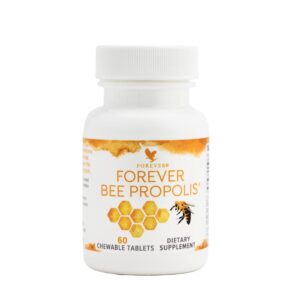 BENEFITS OF BEE PROPOLIS
BENEFITS OF BEE PROPOLIS
Propolis, a resin-like substance produced by bees to reinforce and sanitize their hives, has been praised for centuries in traditional remedies. While it’s commonly associated with supporting immune responses and wound healing, recent interest has turned to how Propolis may contribute to better ocular wellness. Emerging research suggests its powerful antioxidants and anti-inflammatory agents can help maintain lens clarity, strengthen retinal health, and even address everyday eye strain. If you’re looking for a natural ally in preserving sharp, comfortable vision, Propolis deserves closer attention. In this guide, we explore what Propolis is, how it supports eye health, and ways to use it effectively.
Mechanisms Behind Propolis and Improved Ocular Function
Although the link between Propolis and clearer, healthier vision may seem surprising, multiple biological processes converge to make it a potential game changer. By harnessing a potent blend of antioxidants, anti-inflammatory components, and antimicrobial properties, Propolis can positively influence various ocular structures.
1. Neutralizing Free Radicals
Eyes are highly susceptible to oxidative damage—light, toxins, and metabolic byproducts routinely generate reactive oxygen species (ROS). Excess ROS can impair proteins in the lens, clouding vision, or damage photoreceptors in the retina. Flavonoids in Propolis, such as chrysin or pinocembrin, act as free radical scavengers, preventing oxidative harm at the cellular level.
2. Reducing Inflammation
Chronic low-grade inflammation in the eyes can trigger dryness, redness, and speed up degenerative changes like cataracts or macular degeneration. Propolis-based phenolics and flavonoids may inhibit pro-inflammatory enzymes and cytokines, calming ocular tissues. When inflammation is kept in check, the risk of progressive damage lessens, and daily comfort improves.
3. Supporting Collagen and Tissue Repair
The lens, cornea, and sclera (the eye’s white outer layer) all rely on strong collagen structures. Propolis supplies nutrients that foster tissue repair and regeneration. By encouraging new cell growth, it could assist in sustaining the integrity of the cornea or reinforcing the lens against oxidative stress over time.
4. Enhanced Microcirculation
Preliminary evidence suggests Propolis may have positive effects on blood vessel health, although more targeted research is needed. If it contributes to better microcirculation in the retina, delivering more oxygen and nutrients, it could help maintain healthy photoreceptors and reduce the risk of disorders linked to insufficient blood flow (like certain forms of retinopathy).
5. Potential Anti-Glycation Effects
Glycation, a process in which sugar molecules bind to proteins, plays a role in cataract formation by altering lens proteins. Some compounds in Propolis appear to reduce glycation or break down advanced glycation end products (AGEs). While more studies are necessary, this effect positions Propolis as a potential ally in slowing age-related lens opacity.
6. Antimicrobial Defense for Eye Surfaces
The eye is exposed to pathogens daily. Bacterial or fungal infections can injure delicate tissues, diminishing visual clarity. Propolis is renowned for its antifungal and antibacterial potency, meaning it could safeguard ocular surfaces against pathogens, keeping them clear and infection-free.
By integrating these actions, Propolis Improves Vision through a broad-spectrum approach: from safeguarding fundamental eye structures to stabilizing inflammatory reactions. Taken together, these mechanisms underscore why Propolis is attracting attention among those dedicated to proactive eye care.
Why Propolis Is Beneficial for Eye Health
Individuals’ intent on preserving or enhancing ocular function often inquire about the best supplements for Eye Health. While vitamins A, C, and E, along with minerals like zinc, remain central, Propolis emerges as a noteworthy complement for several reasons:
1. High Antioxidant Capacity
Free radical damage ranks as a leading contributor to eye problems. By supplying potent antioxidants, Propolis can join forces with established nutrients (e.g., lutein, zeaxanthin) to multiply overall protection. The synergy ensures that all angles of oxidative stress, from UV exposure to daily environmental irritants, get addressed.
2. Multifunctional Inflammation Control
Dry eye syndrome, blepharitis, and related conditions frequently arise from inflammation. While specialized eye drops or medical treatments may help, using Propolis to calm systemic and localized inflammation may yield additional relief, reducing reliance on multiple interventions.
3. Potential Cataract Prevention
While no supplement can outright cure cataracts once they’re advanced, early intervention can often delay their onset. By targeting glycation and oxidative stress—two major processes behind lens clouding—Propolis may aid efforts to maintain lens transparency. This prospective advantage is especially relevant to older adults or those with a family history of cataracts.
4. Reduced Eye Fatigue
Prolonged screen usage, common in modern life, leads to ocular strain and dryness. The anti-inflammatory and nourishing compounds in Propolis might alleviate strain by supporting normal tear film function and providing antioxidant support to the retina. Users sometimes report less redness and dryness after consistent supplementation.
5. Beneficial Synergy with Other Eye Nutrients
Combining Propolis with fish oil or vitamins C and E can boost overall effectiveness. For instance, fish oil’s essential fatty acids calm systemic inflammation, while Propolis addresses direct free radical threats. Similarly, vitamin C fosters collagen formation, complementing Propolis’ own contributions to tissue integrity.
6. Encouraging Wound Healing
Should minor abrasions or irritations on the cornea occur—perhaps from contact lens usage—Propolis’ tissue-repair qualities might come in handy. By promoting quicker healing, it lowers the window in which secondary infections or complications can arise, ensuring a smoother recovery process.
7. Gentle on the Stomach
Some ocular supplements may cause gastrointestinal discomfort when taken in large amounts. Propolis, typically, is well-tolerated by most people. When paired with a meal or within capsule formulations, it usually poses minimal digestive upset, making it more feasible for long-term use.
Cumulatively, these attributes highlight how Propolis Vision Benefits can complement standard eye care measures. By addressing underlying processes like inflammation, oxidation, and tissue repair, Propolis forms an integral pillar in any holistic strategy to preserve and augment vision.
Practical Tips for Using Propolis to Support Vision
Though Propolis is available in many formats—tinctures, capsules, powders, and topical salves—applying the proper method and dosage ensures maximum benefits for Eye Health. Below are pointers on effectively integrating Propolis into your everyday routine.
1. Choose High-Quality Propolis
- Source Verification: Reputable brands specify geographic origins (e.g., Brazilian, Chinese, European) and clearly label purity standards.
- Standardized Extracts: Some supplements highlight specific flavonoid or phenolic acid content, ensuring consistent potency.
- Testing and Certification: Look for third-party verifications or in-house certificates of analysis to avoid adulterated or low-grade products.
2. Decide on a Preferred Form
- Capsules or Tablets: Offer a convenient, precisely dosed manner of supplementation.
- Liquid Extracts: Tinctures allow flexible dosing and may have quicker absorption, but taste can be strong.
- Sprays: Often used for oral or topical applications, but consult an expert before applying near the eyes directly.
- Topical Creams/Ointments: While primarily for skin, some eye care formulas combine Propolis with other soothing agents for eyelid application. Use only products explicitly intended for ophthalmic use.
3. Adhere to Suggested Dosing
General guidance ranges from 500 mg to 1,500 mg daily of standardized Propolis extract, but exact dosing depends on concentration and personal tolerance. Always follow package directions, and consult a healthcare professional if you have specific conditions or sensitivities. Splitting the daily dose (morning/evening) may maintain more consistent blood levels.
4. Combine with Eye-Friendly Nutrients
For a well-rounded ocular approach, pair Propolis with:
- Vitamin C, E, Zinc: Classic components of eye-protective regimens.
- Lutein, Zeaxanthin: Potent carotenoids that concentrate in the macula.
- Omega-3 Fatty Acids: Combat dryness and support retinal structure.
5. Monitor for Allergies or Sensitivities
As a bee product, Propolis may cause reactions in individuals allergic to bee stings or honey. Start with a low dose or patch test topically if using a cream. Look for signs of itching, redness, or swelling. Immediately discontinue use if you suspect an allergic reaction and seek medical advice.
6. Determine the Best Timing
Taking Propolis with meals can aid digestion and reduce any chance of stomach discomfort. Meanwhile, consistent daily usage for several weeks typically yields better results than sporadic intake. Keep a journal to track changes in eye fatigue or comfort.
7. Complement with Healthy Habits
Even the best supplements cannot fully counteract an unhealthy lifestyle. Sustain vision care by:
- Limiting Screen Time: Or using the 20-20-20 rule (every 20 minutes, shift gaze 20 feet away for 20 seconds).
- Wearing UV-Protective Eyewear: Minimizes ultraviolet-induced oxidative stress on the retina and lens.
- Staying Hydrated: Proper hydration supports tear production and ocular surface comfort.
Integrating these steps can amplify Propolis’ positive impact, leading to heightened daily comfort and improved prospects for long-term visual clarity.
Key Research Findings and Scientific Perspectives
While the volume of studies specifically focusing on Propolis Eye Health remains modest, existing literature and broader data on its bioactive compounds strongly suggest ocular advantages. Below is an overview of notable insights and ongoing investigations.
1. Antioxidant Efficacy Confirmed
Numerous lab and animal experiments document Propolis’ strong antioxidant profile. Flavonoids like pinocembrin can neutralize lipid peroxidation, a process implicated in lens opacification and retinal damage. While direct human trials for eye outcomes are fewer, the antioxidant potential is robustly validated.
2. Anti-Inflammatory and Immunomodulatory Functions
An array of in vitro and animal studies highlight Propolis’ capacity to downregulate inflammatory cytokines (e.g., TNF-α, IL-6). Chronic ocular inflammation underlies conditions like uveitis or keratitis. By blocking specific inflammation pathways, Propolis might reduce the severity or frequency of flare-ups, though targeted clinical trials are needed.
3. Protective Effects Against UV-Induced Damage
Animal research indicates some protective action when Propolis is given before UV exposure, helping shield corneal and lens tissues. This suggests potential synergy with sunglasses or other UV defense strategies, although direct applications for humans remain largely theoretical.
4. Promising Role in Diabetes Management
In studies examining diabetic rats, Propolis supplementation helped moderate blood glucose levels and reduce oxidative stress. Since diabetes significantly impacts vision through retinopathy, any improvement in glycemic control can indirectly defend against ocular complications. Future randomized studies may pinpoint Propolis’ exact role in preventing diabetic eye disease.
5. Antimicrobial Applications in Eye Care
Case reports and pilot studies mention Propolis-based formulations used around the eyelids or eyelashes to manage bacterial or fungal infections. While results vary, the consistent theme is that Propolis exerts broad-spectrum microbial inhibition without severe side effects. Confirmation via larger-scale research could expand its usage in ophthalmology.
6. Insights into Wound Healing Capabilities
Propolis is credited with enhancing tissue regrowth in corneal scratch models, partly by encouraging collagen deposition. If translated effectively to human therapy, it might become an adjunct for minor eye injuries or post-surgery healing processes. Carefully designed clinical trials will be crucial here.
7. Calls for More Human-Focused Studies
Scientists emphasize the need for randomized, placebo-controlled trials that track quantifiable vision metrics (e.g., lens opacities, visual acuity changes, or biomarkers of retinal health). Propolis’ variable composition and differences in preparation methods complicate standardization, making well-designed research especially pivotal.
Though early in its journey, the science surrounding Propolis for ocular well-being remains promising. Many experts anticipate that as these active compounds gain additional scrutiny, they’ll secure a stable place in integrative eye-care protocols.
Frequently Asked Questions About Propolis
H3: Is Propolis safe for everyone to use for eye health?
Propolis is typically considered safe and has a long track record in folk remedies. However, anyone with a known bee or pollen allergy should use caution and do a patch test if applying it topically. Consult a healthcare professional before adding it to your regimen, especially if you have serious allergies or existing eye conditions.
H3: How soon might I notice vision-related improvements from Propolis?
Timelines vary. Many users note subtle changes—such as reduced eye dryness or fatigue—within a few weeks of consistent use. More profound effects (e.g., slowing age-related changes) may take months. Remember, combining Propolis with a balanced diet and proper eye care often yields the best results.
H3: Can I rely on Propolis alone to prevent cataracts or macular degeneration?
No. Propolis acts as a supportive agent, rich in antioxidants and anti-inflammatory compounds. It may help delay or mitigate certain risk factors, but it should not replace conventional eye examinations or medically prescribed treatments. Use Propolis alongside other recommended interventions for a holistic approach.
H3: Should I choose capsules, liquids, or topical forms for vision benefits?
Most people opt for oral capsules or tinctures to achieve systemic antioxidant and anti-inflammatory effects that indirectly benefit the eyes. Topical products exist, but must be formulated specifically for eye or eyelid use. Never apply standard Propolis directly to the eye without medical guidance.
H3: Are there any interactions between Propolis and common eye medications?
There’s limited data on direct drug interactions. Generally, mild usage of Propolis shouldn’t conflict with typical eye drops or ointments. Nonetheless, if you’re using prescription medications or managing chronic conditions (e.g., glaucoma, severe dryness), consult an eye care specialist first to ensure safety and compatibility.
H3: Can I combine Propolis with other supplements like fish oil or vitamin C?
Absolutely. Propolis often works synergistically with other nutrients known for Eye Health. Fish oil, vitamin C, and lutein, for example, target different angles of ocular wellness. In combination, they can form a more robust defense. Just maintain recommended dosages and monitor for any sensitivities.
Our Products Are All 100% Natural and Has No Side Effect.
Your Health Is Our Ultimate Pride, Call / WhatsApp +233500760188 To Make Your Order
Price of Products GHC 2,560.00
Minimum Pack GHC 1,920
TOP EYE PROBEMS AND CAUSES
Eyestrain
Anyone who reads for hours, works at a computer, or drives long distances knows about this one. It happens when you overuse your eyes. They get tired and need to rest, just like any other part of your body.
If your eyes feel strained, give them some time off. If they’re still weary after a few days, check with your doctor to make sure it isn’t another problem.
Red Eyes
Your eyes look bloodshot. Why?
Their surface is covered in blood vessels that expand when they’re irritated or infected. That gives your eyes the red look.
Eyestrain can do it, and so can a late night, a lack of sleep, or allergies. If an injury is the cause, get it checked by your doctor.
Red eyes could be a symptom of another eye condition, like conjunctivitis (pinkeye) or sun damage from not wearing shades over the years. If over-the-counter eye drops and rest don’t clear it up, see your doctor.
Night Blindness
Is it hard to see at night, especially while driving? Is it tough to find your way around in dark places, such as movie theaters?
That sounds like night blindness. It’s a symptom, not a problem in its own right. Nearsightedness, cataracts, keratoconus, and a lack of vitamin A all cause a type of night blindness that doctors can fix.
Some people are born with this problem, or it might develop from a degenerative disease involving the retina, and that usually can’t be treated. If you have it, you’ll need to be extra careful in areas of low light.
Lazy Eye
Lazy eye, or amblyopia, happens when one eye doesn’t develop properly. Vision is weaker in that eye, and it tends to move “lazily” around while the other eye stays put. It’s found in infants, children, and adults, and rarely affects both eyes. Treatment needs to be sought immediately for infants and children.
Lifelong vision problems can be avoided if a lazy eye is detected and treated during early childhood. Treatment includes corrective glasses or contact lenses and using a patch or other strategies to make a child use the lazy eye.
Cross Eyes (Strabismus) and Nystagmus
If your eyes aren’t lined up with each other when you look at something, you could have strabismus. You might also hear it called crossed eyes or walleye.
This problem won’t go away on its own. Sometimes you can go to vision therapy with an eye doctor to help strengthen the weak eye muscles. Often, you’ll likely need to get an ophthalmologist, or eye surgeon, to correct it surgically. You’ll need to get an ophthalmologist, or eye specialist, to correct it.
There are many treatments, including vision therapy to make your eyes stronger. Surgery is also an option. Your doctor will examine your eyes to see which treatment might work best for you.
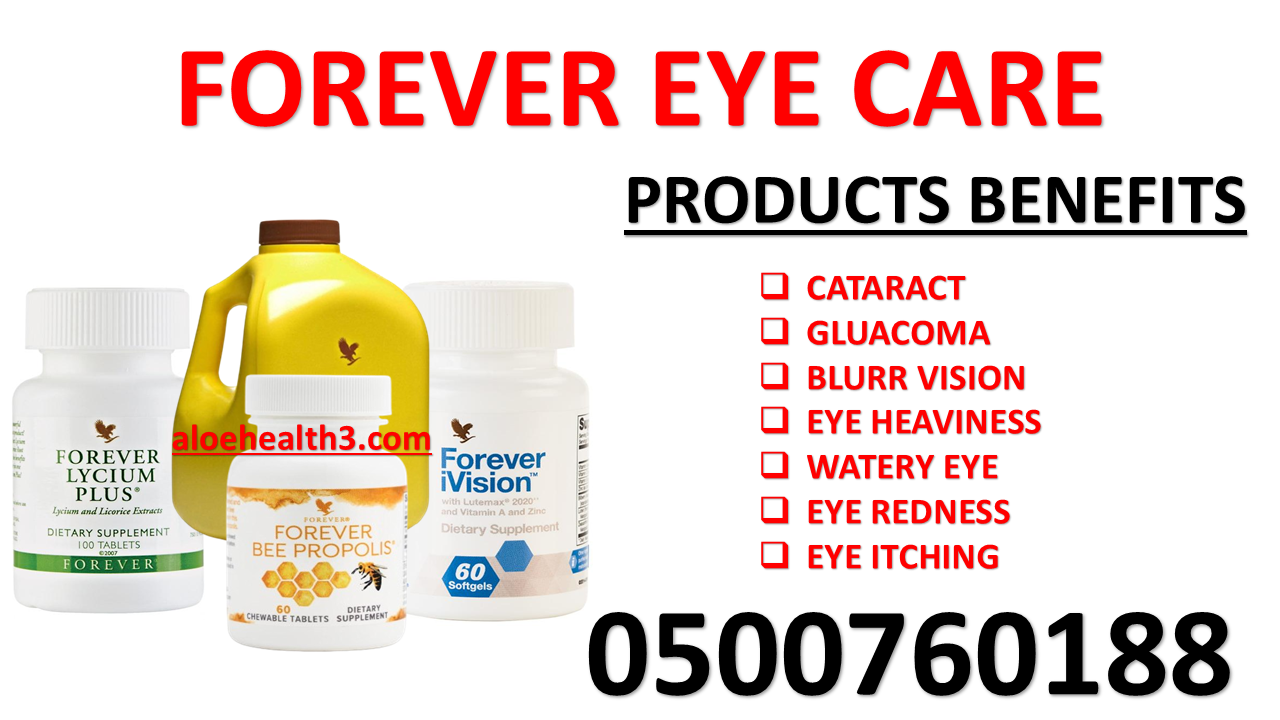
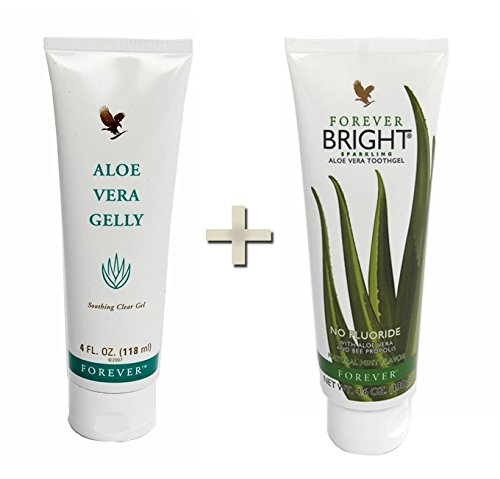


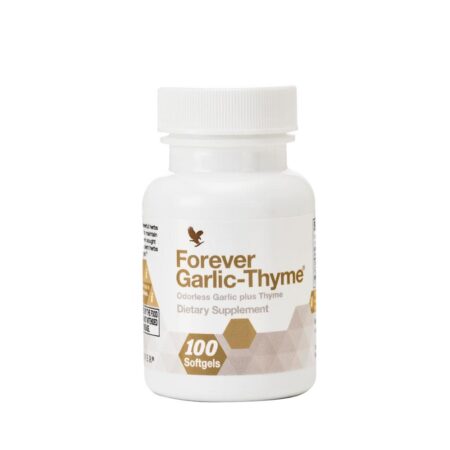
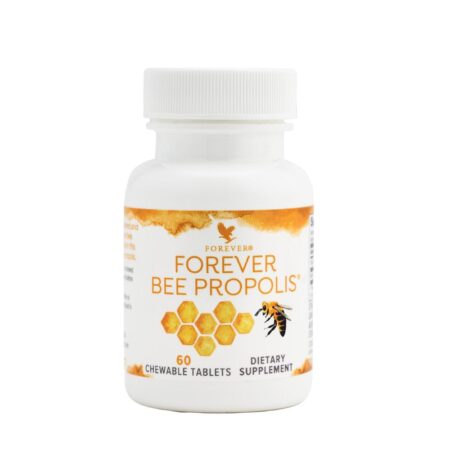
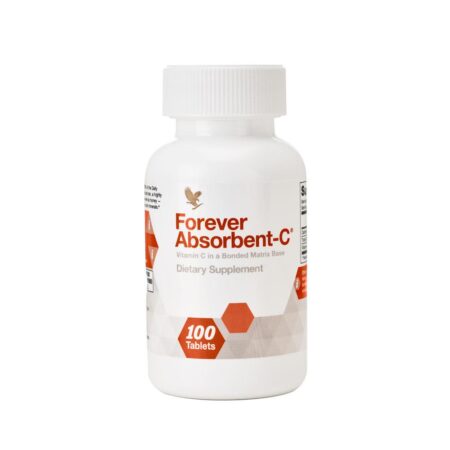

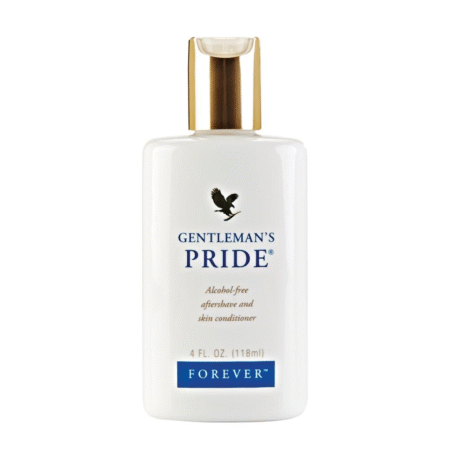
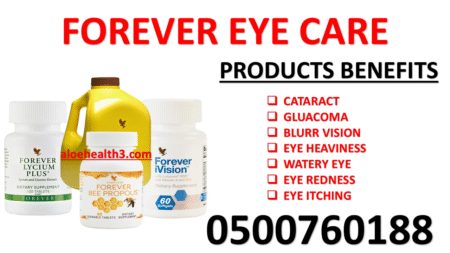
Join Hiddleston –
I am 6 feet tall and 220 lbs. This shirt fit me perfectly in the chest and shoulders. My only complaint is that it is so long! I like to wear polo shirts untucked. This shirt goes completely past my rear end. If I wore it with ordinary shorts, you probably wouldnt be able to see the shorts at all – completely hidden by the shirt. It needs to be 4 to 5 inches shorter in terms of length to suit me. I have many RL polo shirts, and this one is by far the longest. I dont understand why.
Kenneth R. Myers –
The shirt was not the fabric I believed it to be. It says Classic Fit but was made like the older versions, not the soft cotton like my others. I don’t understand how the labels are the same but a completely different shirt. Oh well, stuck with it now.
Mike Addington –
Real authentic genuine quality however it fit me like an XL size when In fact Im L. Beware
Ervin Arlington –
The Ralph Lauren quaility is here in abundance. My husband always says that the Lauren polos fit better and last longer than any other brand.I love the new \”heathered\” color and the price is always excellent through shop
Patrick M. Newman –
My son loved this Jacket for his Senior Prom… He got sooo many compliments! He is slim build 5’11 and 150lbs … I ordered a large … it was a little big … but it was fine!